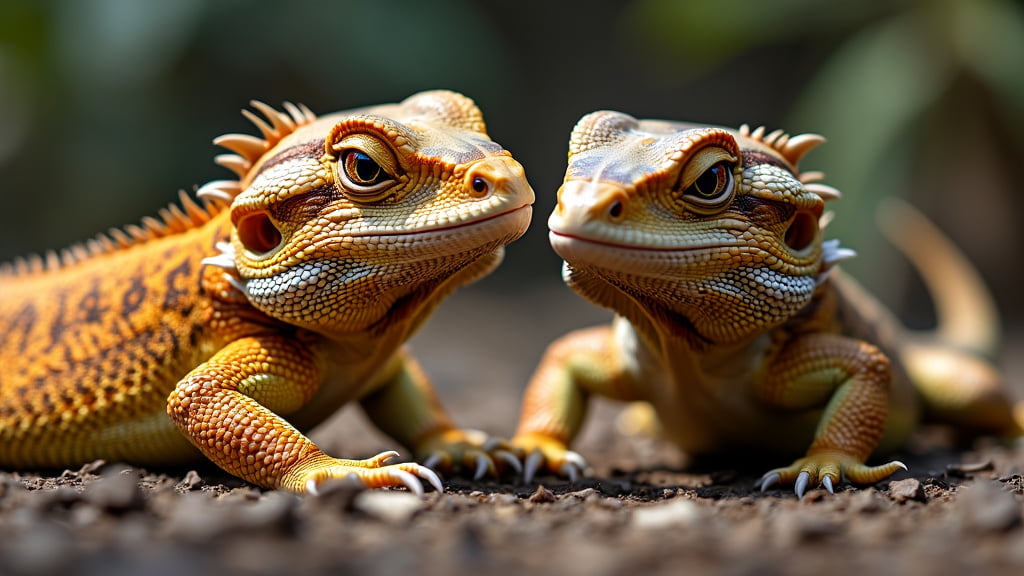Breeding bearded dragons can be a rewarding experience, but it comes with a set of responsibilities and ethical considerations that every breeder should take seriously. To ensure the well-being of these captivating reptiles, it’s crucial to be informed about ethical practices. As someone who has bred many bearded dragons over the years, I’ll share my insights to help guide you through this important subject.
Why Ethical Breeding Matters
Impact on Animal Welfare
The well-being of bearded dragons is the paramount concern. Unfortunately, unethical breeding practices can lead to a myriad of health issues, stress, and poor quality of life for these animals. Some breeders focus solely on profits, creating breeding conditions that can be detrimental to the reptiles.
Examples of Unethical Breeding Practices:
- Overbreeding: Frequent breeding cycles can lead to physical and emotional stress for female dragons.
- Poor Living Conditions: Inadequate space, improper diet, and unsanitary habitats can compromise health.
- Selective Breeding for Traits: While genetic diversity is important, breeding for specific traits, such as colour morphs, can sometimes result in health issues.
Impact on Buyer Education
Educating potential buyers is a critical aspect of ethical breeding. Customers need to understand the care requirements and long-term commitment involved in owning a bearded dragon.
Tips for Educating Buyers:
- Provide comprehensive care guides.
- Share your own experiences and best practices.
- Offer ongoing support post-purchase.
Ethical Breeding Practices
Selection of Breeding Stock
One of the cornerstones of ethical breeding is the careful selection of breeding stock. Healthy, well-tempered bearded dragons should always be chosen to ensure the well-being of both the parents and the offspring.
Health Checks
Regular veterinary check-ups are essential to ensure your breeding dragons are in optimal health. This includes screening for parasites, diseases, and genetic issues.
Consult a reptile veterinarian for professional advice.
Genetic Diversity
Maintaining genetic diversity is critical for the health of future generations. Avoid inbreeding at all costs, as it can lead to congenital defects and reduced immunity.
Responsible Breeding Process
Once you’ve selected your breeding stock, the actual breeding process must be handled responsibly.
Suitable Environment
Provide a Proper Habitat:
- Space: Ensure ample space for both male and female dragons.
- Temperature: Maintain appropriate temperature gradients using basking lamps.
- Hygiene: Keep the habitat clean and free of parasites.
Monitoring Mating Behaviour
Carefully monitor the mating behaviour to ensure neither dragon is stressed or harmed. Male bearded dragons can sometimes become aggressive, and it’s vital to intervene if the female is experiencing distress.
Raising and Rehoming Hatchlings
Following a successful mating and incubation period, you’ll soon have hatchlings to care for and eventually rehome.
Proper Hatchling Care
Ensure the hatchlings receive the best possible care from the moment they emerge. This includes:
- Optimal nutrition for growth and development.
- Regular health monitoring from a vet.
Ethical Rehoming
When it comes time to find new homes for your hatchlings, practise due diligence.
Screen Potential Owners:
- Confirm they have the proper habitat set-up.
- Ensure they understand the long-term commitment.
Provide Resources:
- Offer comprehensive care guides.
- Be available for questions or support.
The Role of the Bearded Dragon Community
Sharing Knowledge
Joining and contributing to the bearded dragon community can be valuable for maintaining ethical standards. Share your experiences and learn from others.
Online Forums and Social Media
Websites like Reddit and specialised forums can be excellent places to exchange information.
Internal link example: Read more about bearded dragon care tips.
Advocacy
Advocating for ethical breeding within the community helps to elevate standards across the board.
Product link example: Understanding Reptile Welfare.
Conclusion
Ethical bearded dragon breeding is about more than just producing hatchlings—it’s a commitment to the health, well-being, and education of every dragon and owner involved. By adhering to ethical breeding practices, monitoring health, maintaining genetic diversity, and providing thorough buyer education, you can contribute to a community that respects and cherishes these wonderful reptiles.
Meta Description: Discover the ethical considerations behind bearded dragon breeding. Learn best practices, from selecting breeding stock to educating buyers, ensuring the well-being of these amazing reptiles.
By focusing on ethical considerations, we not only improve the lives of bearded dragons but also enrich the experience for every reptile enthusiast. Stay informed, stay responsible, and share your journey with the community. Happy breeding!

